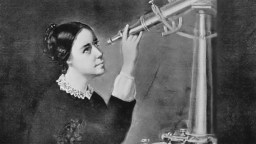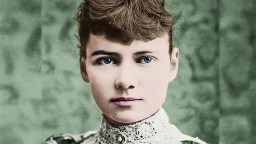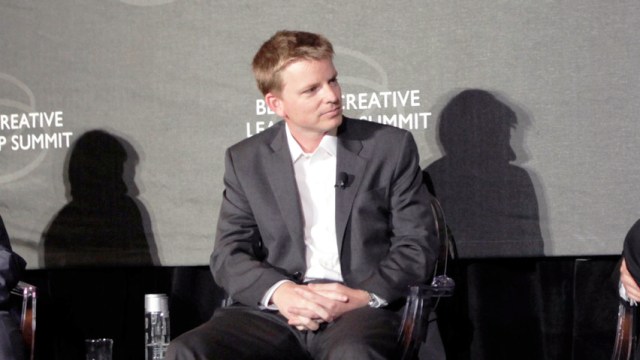How Female Genius Changed the World, One Big Idea at a Time
This Team of Female Astronomers Revolutionized Our Understanding of Stars
This video is part of a series on female genius, in proud collaboration with 92Y’s 7 Days of Genius Festival.
The most fundamental knowledge we have of stars comes from a team of Harvard astronomers working at the turn of the 19th century. This team, known as the “Harvard computers” for their ambitious calculations, was composed entirely of females. As astronomer Anna Frebel explains, male researchers were interested in galaxies — the day’s hot topic. As a result, women pioneered the field of stellar research. Their methods of cataloging stars and determining their chemical composition are still taught at universities today.
Why Fewer Women Succeed at the Highest Levels of Science — From a Woman Who Did
This video is part of a series on female genius, in proud collaboration with 92Y’s 7 Days of Genius Festival.
“Sometimes you have to learn when not to be too much of a lady,” says Joy Hirsch. “So if you have to kick a**, just go do it.” Director of the Brain Function Laboratory at Yale University, Hirsch knows the challenges that women face in professional life. Often valued for more traditional qualities like the ability to teach or mentor, women aren’t always first thought of as leaders; but of course they are, and always have been. The challenge ahead of us, as Hirsch says, is to “allow ambitious, talented women to contribute as best they can.”
Why We Explore the Oceans
97% of Earth’s water is ocean. Without the ocean, Earth would be much like Mars: a bleak, barren, inhospitable place.
The Dangers of Deep Sea Diving
Forget sharks and predatory animals—the most dangerous aspect of diving is oxygen.
If The Oceans Are in Trouble, We’re in Trouble
Sharks are scary, but an ecosystem without them is even scarier.
How a 27 Year-Old Poet Became the World’s First Computer Programmer
This video is part of a series on female genius, in proud collaboration with 92Y’s 7 Days of Genius Festival.
The story of Ada Lovelace, the world’s first computer programmer, begins with a mathematically gifted mother and, as father, the Romantic poet Lord Byron. Notorious for his philandering, Byron contributed the strong poetical streak to his daughter’s worldview. Lovelace’s interest in poetry, however, was something her mother wanted stamp out, surrounding Lovelace with mathematics at the exclusion of the arts. But when Lovelace met Charles Babbage, the mechanical engineer behind the first computer, she found an outlet for her creativity, writing the first complete computer algorithm and becoming the world’s first computer programmer, all at the age of twenty-seven.
Behind Our Favorite Children’s Books, a Woman Who Championed Imagination
This video is part of a series on female genius, in proud collaboration with 92Y’s 7 Days of Genius Festival.
Some of our most timeless children’s books — The Giving Tree, Charlotte’s Web, Where the Wild Things Are, Goodnight Moon — are the result of the little-known publisher Ursula Nordstrom. Editor-in-chief of children’s books at Harper & Row through the middle of the 20th century, Nordstrom championed complex, non-commercial stories for children at a time when it was unpopular to do so. The friendships she built with authors like Maurice Sendak, author and illustrator of Where the Wild Things Are, helped embolden their talents and bestow their gifts upon children of all ages.
To Expose the Truth about Mental Asylums, Nellie Bly Feigned Insanity to Study One
This video is part of a series on female genius, in proud collaboration with 92Y’s 7 Days of Genius Festival.
Nellie Bly may be little known but her achievements are truly outsized. She spoke out for women’s rights; carved out a place for women in journalism by feigning insanity, entering a mental institution, and covering what she saw as a reporter; and she beat Jules Verne’s hypothetical record of traveling around the world in 80 days, accomplishing the feat in just 72.
Maria Mitchell: America’s First Celebrity Scientist
This video is part of a series on female genius, in proud collaboration with 92Y’s 7 Days of Genius Festival.
While England’s Charles Darwin studied the foundations of biological science, America’s Maria Mitchell became famous for her celestial discoveries. She was our nation’s first professional female astronomer. Maria Popova explains: “In 1831 when she was still a teenager obsessed with stargazing she heard that the king of Denmark had offered a gold medal valued at 20 ducats, which was a lot of money at the time to the first person to discover a telescopic comet. It took her 16 years to master the science and the craft of observation, but she did become the first person and C1847T1 was known for 100 years Miss Mitchell’s Comet.”





